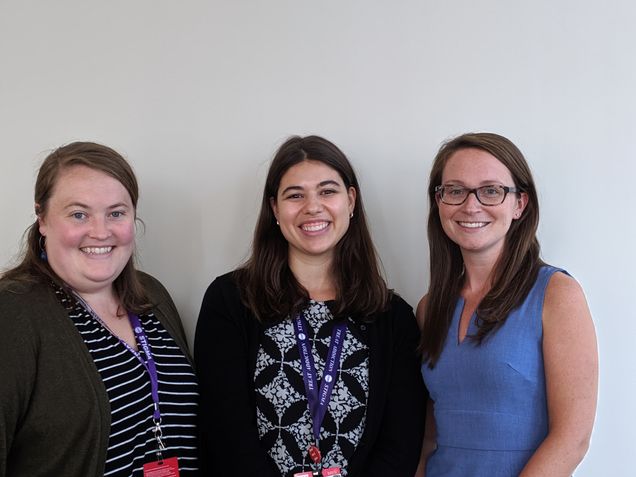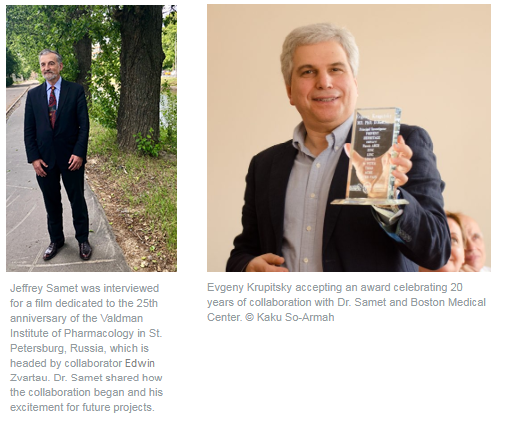Core and Cohort Updates
Admin Core
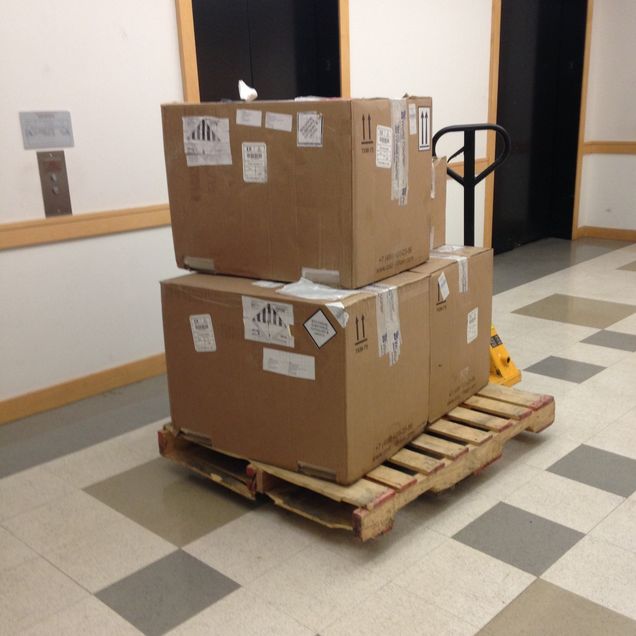
The Admin Core spent the summer working on and submitting the annual NIH progress report, renewing our Institutional Biosafety Committee (IBC) protocol, and preparing for staff hiring and transitions. Additionally, the team received a sample shipment from St. Petersburg in late August for storage in the ARCH repository, which consisted of approximately 65 cryoboxes of serum/plasma/whole blood, 15 bags of DBS cards, 7 cryoboxes of fecal samples, and 6 cryoboxes of nasal samples.
Trevor Baker and Jeffrey Samet attended the Research Society on Alcoholism (RSA) scientific meeting in Minneapolis in late June. URBAN ARCH led a well-attended symposium there entitled “HIV, Alcohol and Comorbidity: From the Microbiome and Immunity to Clinical Outcomes” with presentations from Matthew Freiberg, Shirish Barve, Kaku So-Armah, Judith Hahn, Richard Saitz, and Kendall Bryant. URBAN ARCH investigators and staff also attended a CHAART meeting at RSA alongside other consortia members that focused on the topic of comorbidities, coinfections, and complications in relation to alcohol and HIV research. There was also a meeting among CHAART consortia that discussed future cross-consortia research ideas, integrating implementation science into the consortia, and flexible funding mechanisms.
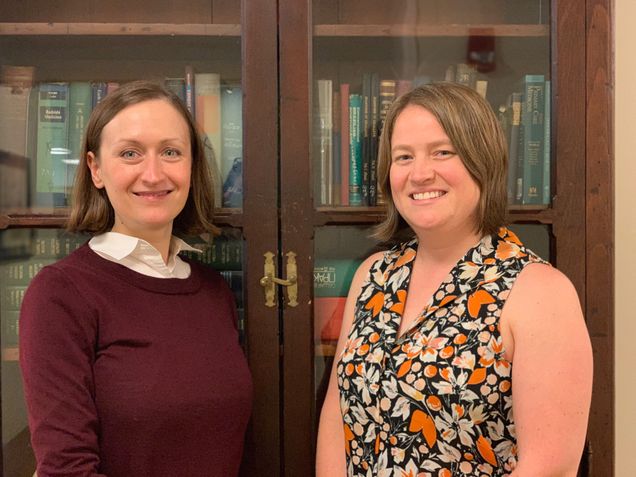
Finally, the Admin Core team says goodbye to two of its team members. Carly Bridden and Trevor Baker have left URBAN ARCH to work on the HEALing Communities Study. Thank you and good luck, Carly and Trevor! Carly’s administrative role and oversight on URBAN ARCH has now transitioned to Natalia Gnatienko. Congratulations, Natalia!
BDM Core
The BDM Core remains active in both data management and biostatistics activities across URBAN ARCH. We are collaborating on several manuscripts in progress and core members are leading analyses that apply innovative, advanced statistical analyses such as causal inference methods and Bayesian kernel machine regression. We have also begun to prepare for the fall DSMB meeting.
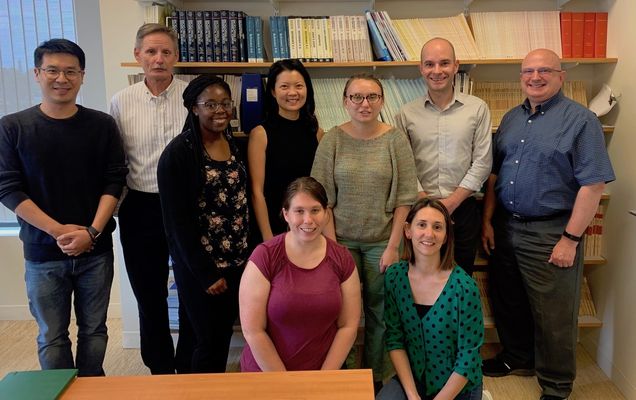
Uganda Cohort
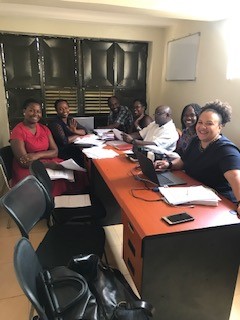
The ADEPTT study is close to concluding enrollment with just 20 participants left to achieve our target of 300. As of September 6, 2019, we have enrolled 280 participants into the study, including 136 males and 144 females. Of these, 181 are current alcohol drinkers and 99 are alcohol abstainers, leaving one last participant to fill our drinking stratum of one third alcohol abstainers. We have screened 1,352 patients from the Mbarara ISS Clinic, of whom 1,115 were eligible for further screening for latent TB. Out of 1,123 PPD placements completed, 285 (25%) participants had positive results for latent TB and were eligible for the study. We’ve completed baseline procedures for all 280 participants enrolled, 263 two-week follow up study visits, 248 month-1 visits, 218 month-2 visits, 203 month-3 visits, 175 month-4 visits, 151 month-5 visits, 160 month-6 visits, 130 month-7 visits, 123 month-12 visits, 73 month-18 visits, and 32 month-24 visits.
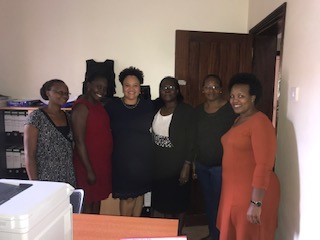
Nineteen participants have discontinued TB preventive therapy (INH) due to grade 3/4 level toxicities and two women have discontinued INH due to being pregnant. One participant is deceased and the cause of death was unrelated to the study.
ADEPTT’s sister study, DIPT, is progressing equally well with almost half of its enrollment met (159 out of 340). The main aims of this randomized controlled trial (RCT) (the DIPT study) are to examine whether economic incentives provided to HIV/TB co-infected heavy drinkers can reduce alcohol use and increase adherence to isoniazid preventive therapy (IPT).

The project director, Nneka Emenyonu, traveled to Mbarara Uganda to oversee study activities and meet with co-investigators and project staff. While in Uganda, Nneka held training sessions in preparation for the EXTEND randomized controlled trial launch this month. Having completed two years of formative qualitative work to develop an alcohol reduction counseling intervention, the EXTEND study will test this intervention via a 270-person RCT using mobile technology to extend clinic-based alcohol counseling for HIV-positive people in Uganda.
Russia Cohort
As of September 6th, St PETER has enrolled 336 participants and an additional 23 participants have continued on in the Russia ARCH cohort without enrolling into St PETER. Three-month completion rate for St PETER is 77.7%.
In July, members of the U.S. study team traveled to First St. Petersburg Pavlov State Medical University to conduct a site visit, where we met with the study team and key stakeholders, observed study visits, performed quality control and study monitoring procedures, and discussed future projects.
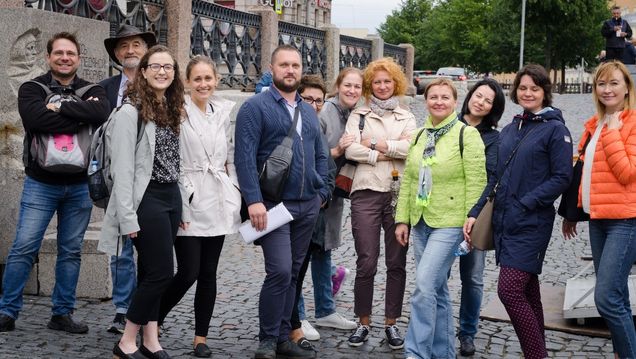
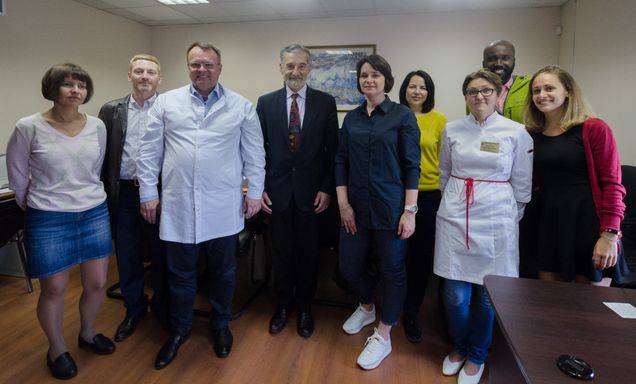
In August, Jeffrey Samet, Kaku So-Armah, and Vladimir Palatkin presented initial data from the TMAO study at the NIH-RFBR Workshop and Joint Working Group Meeting in Rockville, MD. This workshop brought together researchers who are funded by a U.S.-Russia Bilateral Collaborative Research Partnerships on the Prevention and Treatment of HIV/AIDS and Comorbidities mechanism.
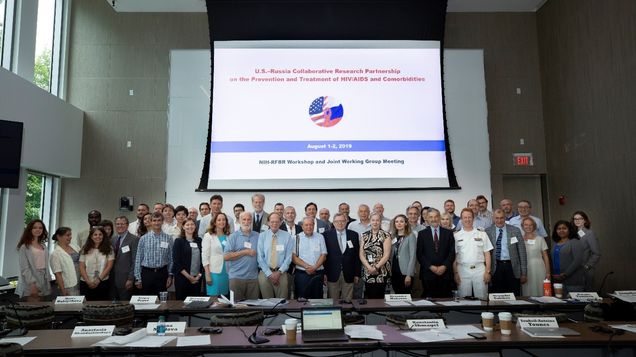
The team is actively pursuing data analyses, abstract submissions, and manuscript preparation. The team is excited to report that the main results from the first round of Russia ARCH funding have been published: So-Armah K, Cheng D, Freiberg M, Gnatienko N, Patts G, Ma Y, White L, Blokhina E, Lioznov D, Doyle M, Tracy R, Chichetto N, Bridden C, Bryant K, Krupitsky E, Samet J. Association between alcohol use and inflammatory biomarkers over time among younger adults with HIV – The Russia ARCH observational study. PLOS One. 2019;14(8): e0219710. PMCID: PMC6705834
In June and July, study team members attended the College on Problems of Drug Dependence (CPDD), Research Society on Alcoholism Annual Meeting (RSA), and the International AIDS Conference (IAS) where the following were presented:
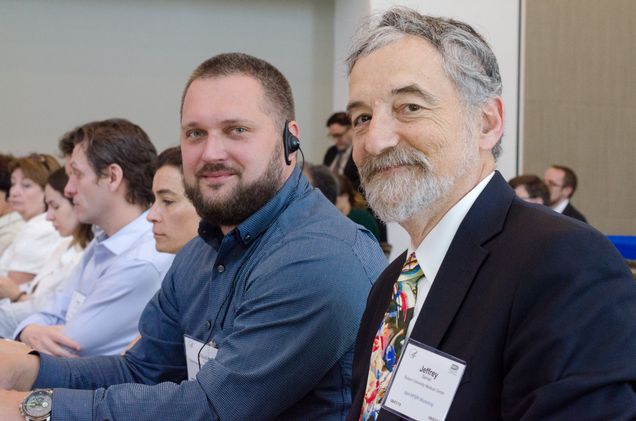
- Pilot study of tolerability and safety of opioid receptor antagonists as novel therapies for pain among HIV-positive Russians with chronic pain and prior heavy drinking (Tsui, et al.). CPDD 2019. Late-breaker oral presentation.
- Metagenomic Analyses of the Gut-Microbial Dysbiosis among HIV Infected Heavy Drinkers (Barve, et al.). Part of the RSA Symposium: Saitz R, Bryant K, Barve S, So-Armah K, Hahn J, Freiberg M. HIV, Alcohol and Comorbidity: From the microbiome and immunity to clinical outcomes. RSA 2019. Oral presentation.
- Metagenomic analyses reveal a significant enrichment of “pro-inflammatory” Enterobacteriaceae associated with very heavy alcohol use and HIV infection (Barve, et al.). RSA 2019. Poster presentation.
- Police abuse, ART adherence, and harm reduction among PWID living with HIV in Ukraine (Schoenberger, et al.). IAS 2019. Poster presentation.
Published Manuscripts:
- So-Armah K, Cheng D, Frieberg M, Gnatienko N, Patts G, Ma Y, White L, Blokhina E, Lioznov D, Doyle M, Tracy R, Chichetto N, Bridden C, Bryant K, Krupitsky E, Samet J. Association between alcohol use and inflammatory biomarkers over time among younger adults with HIV – The Russia ARCH observational study. PLOS One. 2019;14(8): e0219710
- Barocas JA, So-Armah K, Cheng DM, Lioznov D, Baum M, Gallagher K, Fuster D, Gnatienko N, Krupitsky E, Freiberg MS, Samet JH. Zinc deficiency and advanced liver fibrosis among HIV and hepatitis C co-infected anti-retroviral naïve persons with alcohol use in Russia. PLoS One. 2019; 14(6):e0218852.
- Samet JH, Blokhina E, Cheng DM, Walley AY, Lioznov D, Gnatienko N, Quinn EK, Bridden C, Chaisson CE, Toussova O, Gifford AL, Raj A, Krupitsky E. A strengths-based case management intervention to link HIV-positive people who inject drugs in Russia to HIV care. AIDS. 2019; 33(9):1467-1476
Boston Cohort
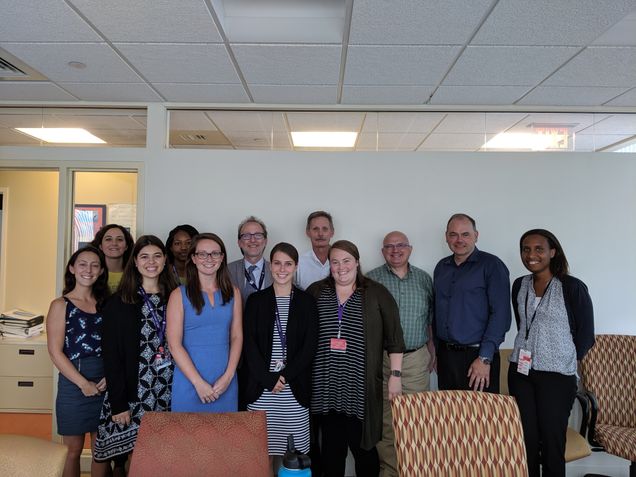
As of September 4th, Boston ARCH 4F has completed 211 baseline visits (169 with participants from the original Boston ARCH Bone Cohort and 42 with participants new to the cohort) and 154 6-Month follow-up phone interviews. We have also begun conducting annual follow-up visits, and have completed 94 12-Month follow-up in-person interviews and 10 18-Month follow-up phone interviews.
The Boston ARCH team welcomed three new staff members. Kara Magane joined the team as Director of Research Operations. Kara comes to us from Boston Children’s Hospital where she managed multiple research studies focused on adolescent substance use. Elsa Sweek joined the team as a Project Manager. Elsa comes to us from Massachusetts General Hospital where she worked as a clinical research coordinator on HIV and mental health studies. A new research assistant, Olivia Ciolfi, also joined the Boston ARCH team. Olivia graduated from Northeastern University with a bachelor’s degree in Health Science, and minors in Biology and Global Health. We’re excited to welcome these three new additions to the Boston ARCH team!
